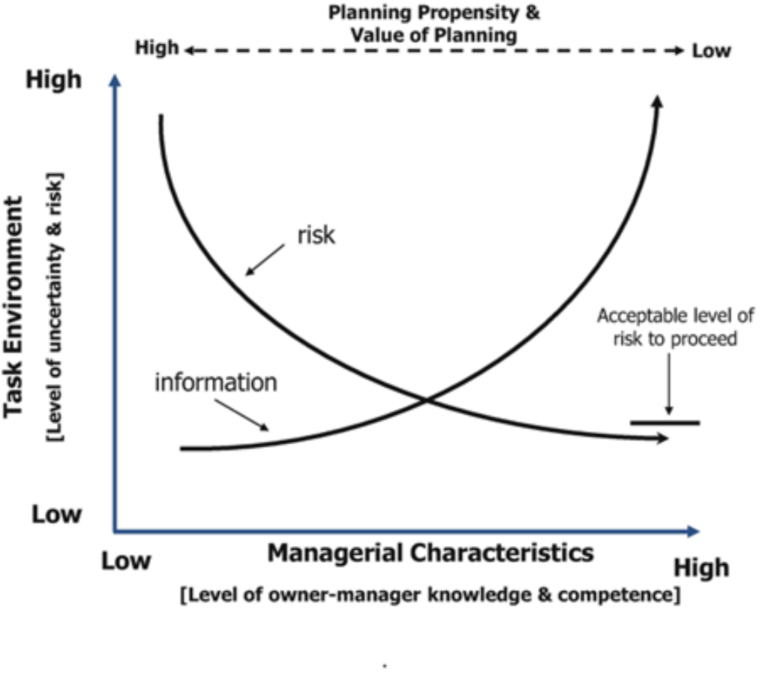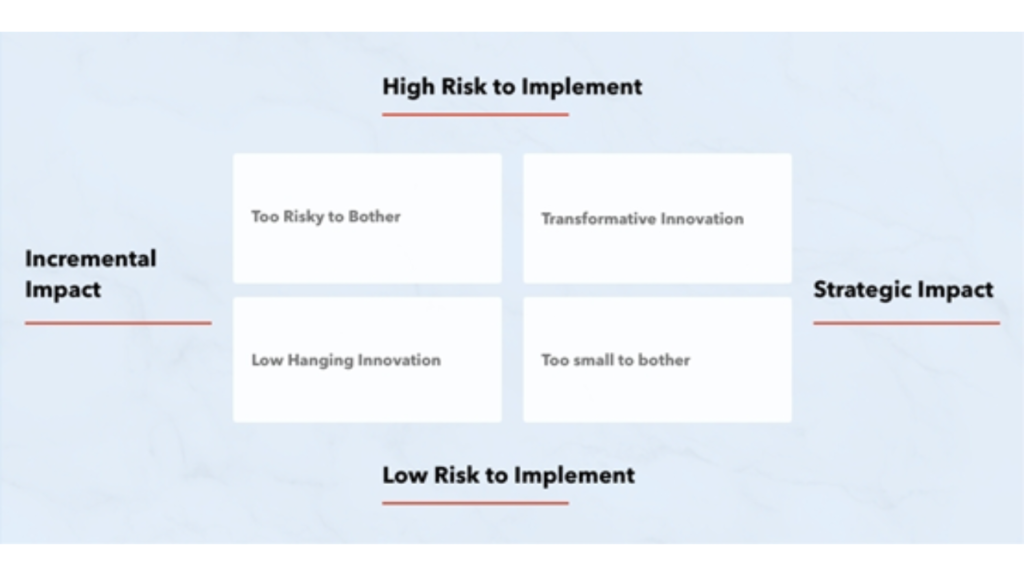Balancing Innovation with Risk Management: How TCS Helps Clients Achieve This critical Balance
In today’s fast-paced digital world, businesses are under constant pressure to innovate. Companies are expected to leverage emerging technologies, enhance customer experiences, and optimize operations to stay ahead of the competition. However, with innovation comes inherent risk. Whether it’s cybersecurity threats, regulatory compliance challenges, or the complexity of integrating new technologies, managing risk has become as crucial as driving innovation.
One of the world’s leading IT services and consulting companies, Tata Consultancy Services (TCS), has been at the forefront of helping organizations balance innovation with risk management. TCS combines its deep industry expertise with cutting-edge technology solutions to help businesses manage risk while fostering an environment of innovation. In this article, we will explore how TCS has enabled its clients to innovate effectively while safeguarding against risks, using real-world examples from various industries.
The Challenge of Innovation and Risk
Innovation is vital for staying competitive in today’s market, but it’s not without challenges. Companies face several types of risks when rolling out new initiatives:
Cybersecurity Risks: With new digital solutions come new vulnerabilities. Hackers are constantly finding ways to exploit weak points in technology systems.
Compliance Risks: As companies adopt new technologies, they need to stay compliant with increasingly complex and varied global regulations such as GDPR, HIPAA, or industry-specific standards.
Operational Risks: Integrating new systems or solutions can create operational disruptions or failure points if not carefully managed.
Financial Risks: New innovations require significant investment, and without proper risk management, these investments could result in costly failures.

TCS Approach to Balancing Innovation with Risk
TCS’s approach to balancing innovation with risk management involves a strategic, multi-layered framework that incorporates best practices across technology, governance, and organizational culture. The company ensures that its clients can innovate without exposing themselves to excessive risk by applying the following principles:
1. Building a Secure Digital Foundation: Innovation must be built on a strong and secure IT infrastructure. TCS ensures that the foundational systems—whether on-premises or cloud-based—are robust, scalable, and secure.
2. Leveraging AI and Automation for Risk Monitoring: By using AI and machine learning, TCS helps businesses predict, detect, and mitigate risks in real-time. These technologies enable proactive measures to prevent potential security breaches, operational failures, and compliance violations.
3. Compliance by Design: TCS promotes a “compliance by design” approach, integrating regulatory compliance into the development and deployment of new systems. This ensures that businesses can innovate freely without fearing regulatory violations.
4. Creating a Culture of Innovation with Safety Nets: TCS helps companies nurture a culture of innovation while incorporating risk management practices at every step—from ideation to execution. This includes continuous monitoring, feedback loops, and iterative improvement processes.
5. Collaboration with Industry Experts: By partnering with industry regulators, security specialists, and compliance professionals, TCS ensures that its clients are aware of the risks and compliance requirements in their respective industries.

Real-World Examples of TCS Helping Clients Balance Innovation with Risk Management
1. Helping a Global Bank Adopt Blockchain While Managing Security Risks
A prominent global bank wanted to innovate by integrating blockchain technology to streamline its payment systems and reduce operational costs. Blockchain offered tremendous potential for security and efficiency, but it also introduced new risks, especially related to cybersecurity, data privacy, and regulatory compliance.
TCS partnered with the bank to implement a secure blockchain-based platform while ensuring full compliance with financial regulations, including anti-money laundering (AML) and know-your-customer (KYC) requirements. To balance innovation with security, TCS employed advanced cryptographic techniques to secure transaction data and ensure the integrity of the blockchain ledger.
Moreover, TCS helped the bank establish real-time risk monitoring systems powered by AI and machine learning, which continuously scan for potential threats such as fraudulent transactions or cybersecurity breaches. This allowed the bank to innovate with blockchain technology while maintaining a robust risk management framework, ensuring compliance with global standards.
2. Digital Transformation for a Global Healthcare Provider
A global healthcare provider embarked on a digital transformation journey to introduce new telemedicine services, electronic health records (EHR), and AI-driven diagnostic tools. These innovations had the potential to improve patient outcomes and operational efficiency, but they also came with serious risks related to data security, patient privacy, and regulatory compliance.
TCS helped the healthcare provider by implementing a cloud-based solution for storing and processing sensitive patient data. The solution adhered to the strictest security protocols, including end-to-end encryption, multi-factor authentication, and continuous security auditing. Furthermore, TCS ensured that all digital platforms were fully compliant with healthcare regulations such as HIPAA in the U.S. and GDPR in Europe.
By leveraging TCS’s AI-driven risk management solutions, the healthcare provider was able to detect anomalies in real-time, identify potential security breaches, and automatically trigger responses to mitigate any risks. This enabled the healthcare provider to introduce cutting-edge innovations while safeguarding sensitive patient data and complying with stringent regulations.
3. Helping a Manufacturing Giant Implement IoT Solutions While Managing Operational Risks
A leading global manufacturing company wanted to embrace Internet of Things (IoT) technology to monitor its factory equipment and improve operational efficiency. While the potential for IoT was high, the company was concerned about the operational risks of integrating millions of devices into its network, which could lead to system failures or downtime.
TCS assisted the manufacturer in creating a secure and resilient IoT network by adopting a hybrid cloud architecture that provided both flexibility and scalability. TCS implemented edge computing to process data closer to the source, reducing latency and bandwidth usage, while ensuring high availability.
To address operational risks, TCS integrated predictive maintenance powered by AI into the IoT platform. This allowed the company to identify potential equipment failures before they occurred, reducing unplanned downtime and maintenance costs. Additionally, TCS’s risk modeling tools helped the company assess and mitigate potential risks in its IoT infrastructure, ensuring that the transition to IoT was smooth, secure, and aligned with the company’s broader goals.
4. Digital Banking Innovation While Ensuring Regulatory Compliance
A fintech company looking to provide digital banking services sought TCS’s help to create a platform that would integrate AI for fraud detection, machine learning for customer insights, and blockchain for secure transactions. However, the company had to navigate the complexities of compliance with financial regulations, including GDPR, KYC, and AML.
TCS helped design a digital platform with built-in compliance controls and audit trails. Through AI-powered regulatory monitoring systems, TCS ensured that the platform continuously monitored for compliance violations, particularly in areas like data privacy and transaction security. Furthermore, TCS used AI-driven fraud detection algorithms that not only identified suspicious activities but also provided recommendations to reduce risks in real-time.
With TCS’s guidance, the fintech company was able to launch its digital banking platform, innovate with cutting-edge technology, and maintain rigorous compliance, ultimately positioning itself as a trusted provider in the highly regulated financial sector.
Conclusion
Innovation is essential for business growth, but without careful risk management, it can expose companies to significant challenges. TCS has been a leader in helping its clients navigate this complex landscape, enabling them to innovate confidently while managing risks. Through its secure IT infrastructure, data-driven risk management tools, and deep industry expertise, TCS provides businesses with the strategies and technologies necessary to embrace innovation without compromising on security, compliance, or operational stability.
By helping companies across industries—banking, healthcare, manufacturing, and fintech—TCS demonstrates that innovation and risk management are not opposing forces. Instead, they can coexist and drive sustainable growth when approached with the right balance and foresight. As businesses continue to evolve in an increasingly digital world, TCS will remain a trusted partner in ensuring that innovation remains a strategic enabler, not a risky endeavor.
Prashant D. Bharadwaj and his team at TCS continue to exemplify this philosophy, showing that with the right strategy and technology, innovation can thrive without sacrificing risk management. The future is one where businesses can boldly embrace new opportunities while keeping risk under control—thanks to the efforts of leaders like Prashant D. Bharadwaj, who are shaping the future of IT strategy.
Subscribe now for insights from Prashant D Bharadwaj, CTO, on how TCS empowers clients to master the art of balancing innovation and risk management!
Prashant D. Bharadwaj
Tata Consultancy Services (TCS)